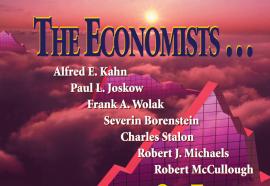I Quit!
EPA director steps down, and tells you why.
I resign today from the Environmental Protection Agency after 12 years of service. I cannot leave without sharing my frustration about the fate of our enforcement actions against power companies that have violated the Clean Air Act.










